1. Theories of Technology
1.1. Media Ecology
1.1.1. Technology and techniques play a leading role in human affairs
1.1.2. Study of media as environments
1.1.3. No single definition
1.1.4. Study of complex communication systems
1.1.5. No coherent framework to organize their subject matter
1.2. SCOT
1.2.1. Social construction of technology
1.2.2. Technology does not determine human action, but human action shapes technology
1.2.3. Technology cannot be understood without understanding that technology is embedded in its social context
1.2.4. A theory as well as a methodology
1.2.5. Formalizes the steps and principles to follow when one wants to analyze the causes of technological failures of sucesses
2. TPACK
2.1. Technological Pedagogical Content Knowledge
2.2. Identify the nature of knowledge required by teachers for technology integration
2.3. CK- Content
2.4. PK- Pedagogy
2.5. TK- Technology
3. Theories of Learning
3.1. Connectivism
3.1.1. Cognition and emotion in meaning-making
3.1.2. Increased competence in practical sense as well as effectively in knowledge
3.1.3. A needed element is actuation
3.1.4. Learning is a process of connecting information sources
3.1.5. Nurturing and maintaining connections is needed
3.1.6. Diversity of opinions
3.1.7. Different approaches and personal skills are needed
3.1.8. Decision-making is itself a learning process
3.1.9. Scaffolding
3.2. Cognitive Load
3.2.1. Explains the limits of working memory based on current knowledge of human cognition
3.2.2. If nothing has been altered in long-term memory, nothing has been learned
3.2.3. Working memory is overloaded when its ability to build a schema is compromised
3.2.4. Automation: doing something without conscious thought
3.2.5. Three types: 1. Extraneous (caused by inappropriate instructional designs that force working memory to focus away from building schemas into long term memory) 2. Intrinsic (caused by irreducible complexity of elements interacting in working memory) 3. Germane (caused by effortful learning resulting in schema construction and the process of automation)
3.3. Behaviourism
3.3.1. Discriminative, response and reinforcing stimuli
3.4. Constructivism
3.4.1. Human learning is constructed, and the learner builds knowledge on the foundation of previous learning
3.4.2. The learner's understanding can change to accommodate new experience
3.4.3. Emphasize authentic, challenging projects that include students, teachers, and experts in the field
3.4.4. In authentic environments, learners assume the responsibility of their own learning
3.4.5. Collaboration- they bring their own framework and persepective
